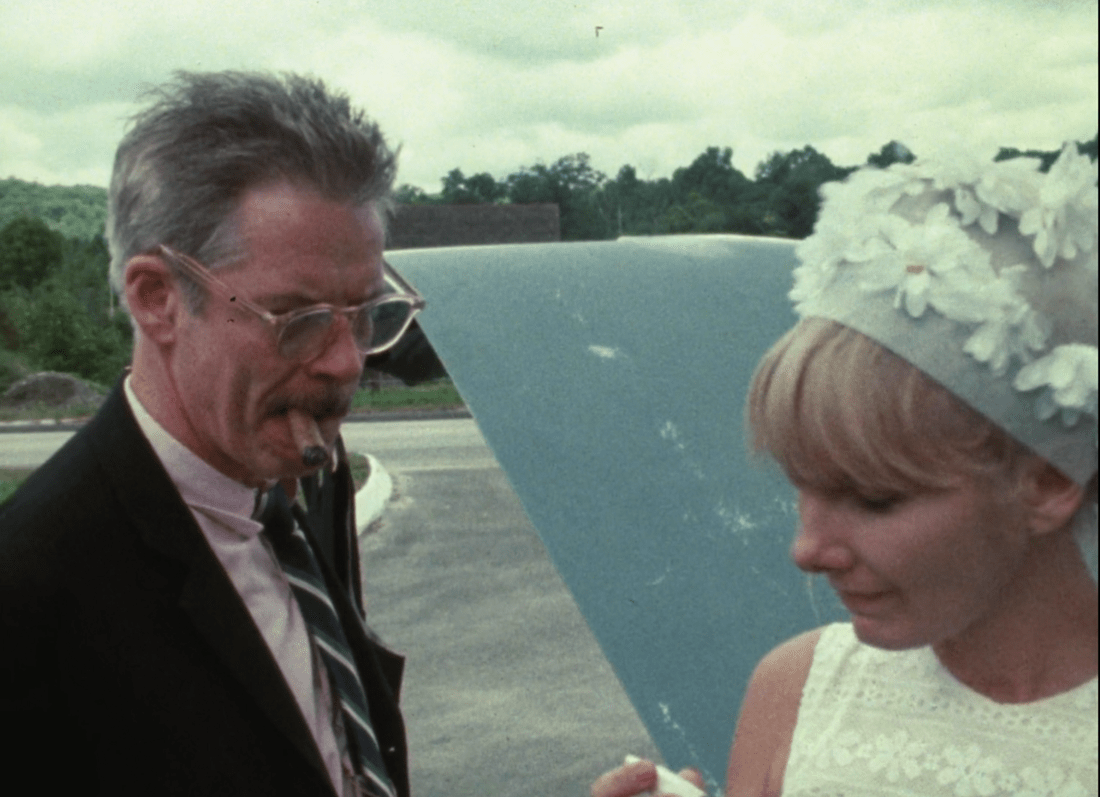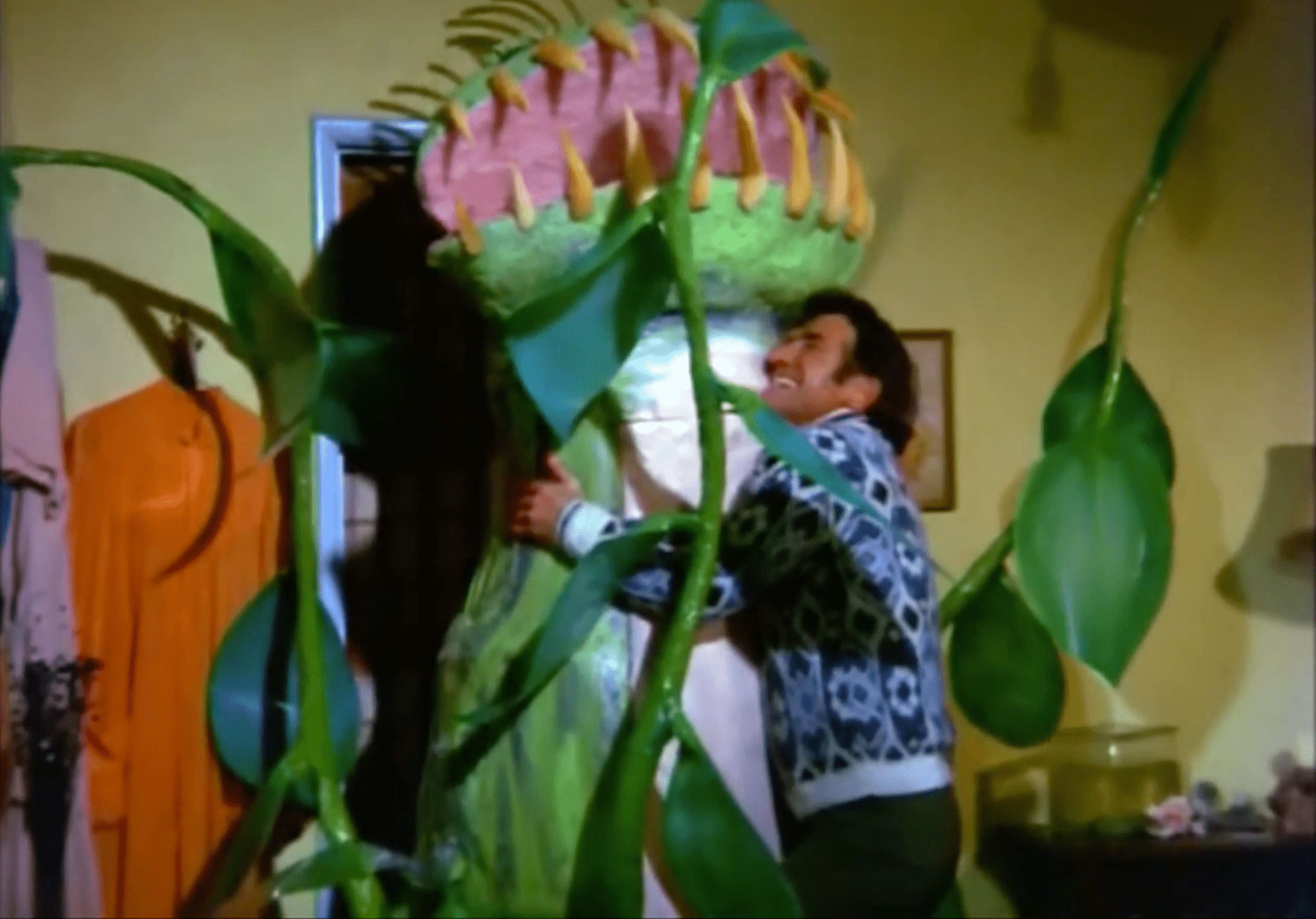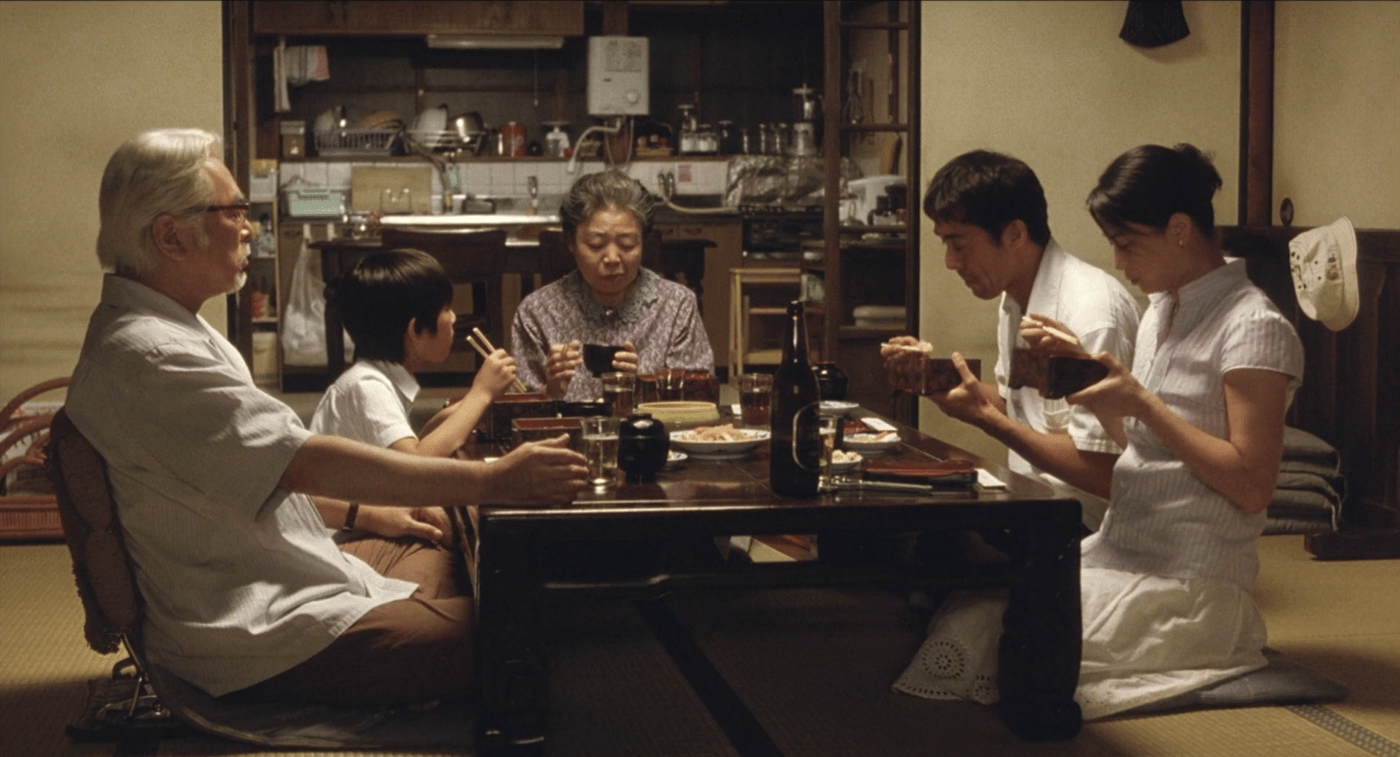
Let me be the first to admit I had never heard of Timothy Carey. I watched The World’s Greatest Sinner because the title was titillating, not because some guy named Timothy Carey wrote, directed, produced, and starred in it. Little did I know he had acted in Billy Wilder's 1951 Ace in the Hole, Elia Kazan’s 1955 East of Eden, László Benedek’s 1953 The Wild One, John Cassavetes’ 1976 The Killing of a Chinese Bookie, and he’s even on the cover of The Beatles’ Sgt. Pepper's Lonely Hearts Club Band, although George’s head obscures him and Bettie Davis. They are only visible in an alternate shot.

The World’s Greatest Sinner follows a corrupt demagogue who uses folksy wisdom and a guitar to enthrall the masses. It’s not the first film to follow the rise and fall of such a character. Before The World’s Greatest Sinner came out in 1962 (actually it never had an official release), there was Richard Brooks’ Elmer Gantry from 1960, starring a bombastic Burt Lancaster, and Elia Kazan’s A Face In The Crowd starring Andy Griffith, which came out in 1957. They all cover similar ground, however, The World’s Greatest Sinner is a bit more wild and wooly.

The sound is a particularly strange and slapdash affair. Some of the dialogue is recorded on what I assume is a boom-mic, but other parts are dubbed in. It wouldn’t be so strange, but the sound sometimes switches back and forth in the same scene while characters are exchanging dialogue. At one point, something completely inexplicable happens. One of the actresses turns to the camera and lip-syncs a line that is meant for the man in the scene to deliver, so we hear a male voice coming out of a female character’s mouth. There is no build-up, no context or explanation, it just happens like a bizarre blooper.
The plot of The World’s Greatest Sinner is simple. Clarence Hilliard is an insurance salesman who is bored with his job, so he decides to go into politics to spice things up. Meanwhile, a very large boa-constrictor, who no one seems to notice, slithers through Hilliard’s pristine suburban backyard. An echoey voice pipes up, and as you search for the speaker, you realize it's the snake’s internal dialogue. It turns out the snake is the Devil, and his voice is dubbed by someone doing an impression of Orson Welles a la Mork and Mindy or Pinky And The Brain.

With what appears to be some supernatural influence on the snake's behalf, Clarence takes to the street corner and starts screaming about how he is God and that he will bring an end to death. Instead of being carted away by men in white suits, an interested crowd starts to gather and listen. This is the first instance where Trump’s rise to power is prophesized. You listen to the arrogant insanity coming out of Clarence’s deranged, narcissistic mouth and you think that no one would ever listen to such crap, but then you remember 2016.
Timothy Carey’s approach to acting is based on a simple principle: the louder you yell, the better the acting. This, as you might imagine, results in a very loud movie. You could never impugn his stage presence, he’s like an angry Tim Curry.
With his meager, new-found band of followers, Clarence founds the Eternal Man Party. He funds it by sleeping with rich ladies who then donate to his campaign. Some are pretty old, but one is just 14. I’m not sure why he sleeps with her, I guess she could fork over her allowance. The first woman he sleeps with is very old, and just before he kisses her, he holds her face in his hand and lovingly whispers, “You’re just like my mother. If I had more like you, then my plan would triumph.” Then he kisses her with a really deep and uncomfortably thorough kiss.

Then we get a series of montages featuring larger and larger crowds listening to Clarence’s speeches. In another foreshadowing of Trump, his followers storm a building and riot in the streets. We even have shots of people pressed up against glass doors.

The campaign poster for Clarence’s party looks like a cross between Che Guevara and Robert Downey Jr. I guess people like images of men yelling with big open mouths. Later, Clarence is interviewed and says something that could have easily come out of Trump’s childishly hyperbolic mouth, “I expect to get more votes than any other candidate in history.”

What really drives the plot and keeps the film interesting is the addition of rock 'n’ roll to the mix. To gather a crowd, Clarence learns to play the guitar and sing. His concerts consist of him trying to imitate Elvis, but he comes off more like Lux Interior. If you are not familiar with Lux, you are really missing out. He was the fabulously demented lead singer of a punk group called The Cramps, a personal favorite of mine.
The World’s Greatest Sinner has yet another moment of prescience, but this time it involves John Lennon. In 1966, four years afterthe film came out, the infamous interview with John Lennon was published in which he said that the Beatles were “more popular than Jesus.” This of course triggered the ever-predictable followers of the crucified one to commence burning Beatles albums. Had those same Christians seen The World’s Greatest Sinner four years earlier, they would have witnessed Carey screaming, “The biggest lie of mankind is Christ!” Their poor little Christian heads would have popped. Maybe that’s why Carey is on the cover of Sgt. Peppers.

Clarence's relationship to God and religion is hard to parse out. His Eternal Man Party is founded on the idea that there is no god other than yourself. One of his assistants writes the supporting tenets on a board: “We are superhuman beings. We must be positive. The only heaven is on Earth." Then he adds, “And to sum it up, there will be no death!” Carey is either trying to present some muddled version of atheism, or he is just trying to construct a philosophy that is as sacrilegious as possible for the sake of drama. It is a little reminiscent of Coffin Joe and his Nietzschean trilogy of films: At Midnight, I'll Take Your Soul (1963), This Night, I'll Possess Your Corpse (1967), and Awakening of the Beast (1970).

In the end, The World’s Greatest Sinner is a standard descent into madness plot with a self-destructive protagonist hurtling toward disaster. I’ll leave out the ending, but descent into madness narratives almost always result in one of two endings, the protagonist is redeemed or annihilated. A movie from 1962 could not end with Clarence's success.

The strange and eclectic soundtrack was written by… you’ll never guess… Frank Zappa! This was Zappa before The Mothers of Invention. In 1962, his band was called Baby Ray & The Ferns. Zappa later referred to The World’s Greatest Sinner as “the world’s worst movie.” People are way too cavalier with throwing around this very special status. Zappa obviously had never seen Alien Beastsor Bat Pussy.
The World’s Greatest Sinner is essentially about demagoguery, cult-like devotion, and avarice. It is also about the vulnerability of the masses, delusion, and democracy. There is some stock footage of a few political conventions thrown in near the end of the film.
Chomsky once explained that a dictator need not be concerned with what the population thinks. He can crush dissent with brute force. In a democracy, a would-be leader is obliged to control what the populace thinks to get himself elected. The problem with living in a democracy becomes an ever-present anxiety about the vulnerability of the masses. We worry that the average citizen will not be able to see through the smoke and mirrors. It was Trump who once said, “Ah the uneducated, I love the poorly uneducated.”

If you enjoyed this article you might also enjoy https://filmofileshideout.com/archives/repentance-a-great-film-in-danger-of-disappearing/




Great write up. I had a hard time with this one and I don't think I ever ended up finishing it. I'm a huge fan of both Timothy Carey and Frank Zappa so this should've worked for me. Maybe I'm not ready for it yet (even though I can sit through 200 Motels no problem.)